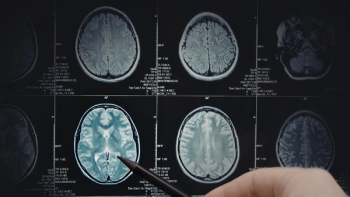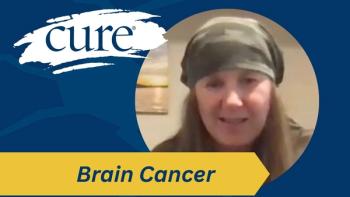
- Summer 2015
- Volume 14
- Issue 3
Effecting Change in Glioblastoma
Could immediate access to care be the turning point?
It is with great pleasure that I accept this opportunity to write a piece for CURE. I am hopeful that this will be:
- Informative, insightful and inspirational
- Create expanded collaborative efforts
- Provide hope
- Encourage a change for patients diagnosed with an initial glioblastoma (GBM) brain tumor in the areas of initial diagnosis, initial surgery and a change in our current standard of care. This will be done through providing immediate access to advanced treatments, studies and clinical trials.
The change I am referring to is a significant shift in current standard of care. This includes discussions related to prior consent, immunotherapy, vaccines, devices, DNA sequencing/genomic profiling, MGMT testing and so on. It also includes discussions related to advanced treatments, targeted therapies and/or clinical trials prior to surgery — essentially, a much more proactive and personalized approach for this disease at the time a primary cancerous brain tumor or metastatic brain tumor is diagnosed.
You may be wondering who am I and what the EndBrainCancer Initiative |Chris Elliott Fund is. First of all, I want to share information that I have learned through personal experience, as a brain cancer advocate and I love to write. Secondly, I have now been immersed in the brain tumor community locally and nationally for nearly 16 years. You see, I am like many of you who have a loved one who was diagnosed with this disease. My late husband, Christopher Stewart Elliott, was diagnosed with brain cancer and lost his battle with this disease. I have personally gone through some of what you are experiencing: shock, desperation, frustration and truthfully, the inability to understand why there are no effective treatments for this disease and why patients are not routinely referred to the top neurosurgeons/neuro-oncologists for this disease.
Today, and for the last 13 years, our Care Coordinator Team and I have been working through our Brain Tumor Patient Support Services & Call Center located just east of Seattle. The work we do through the EndBrainCancer Initiative | Chris Elliott Fund and our “Direct Connect” one-on-one personalized program (plus the use of technology) provides immediate access and educates patients and their caregivers, families and friends about advanced treatments and clinical trials with the belief and goal of moving, patient-by-patient, brain cancer patients into clinical trials as soon as possible. While we initially saw this as providing “patient support,” we recently realized that through our efforts and day-to-day work that, as an organization, we were essentially fueling and accelerating research.
With this realization came the concept for the EndBrainCancer Initiative, which is a focused collaborative effort between founding partners, biotech/biomed, pharma, device companies and top brain tumor neurosurgeons and neuro-oncologists. Its goal is to quickly and effectively change this disease and its outcomes by actively practicing a patient-focused, immediate-access and an advanced treatment-approach to treatment as current standard of care for this patient population is relatively unsuccessful.
It dawned on me yesterday in a conversation with the immediate past boss of my late husband, Chris, that we will never have an effective treatment for this disease if we continue to get these patients into clinical trials after their brain cancer has returned (rGBM). At this point, the disease is actually a different disease as the molecular structure of the tumor has changed. The tumor is not the same tumor that it once was. Therefore, why are we treating most of these tumors in the same way and why are so few of these patients entering into clinical trials? Why aren’t we taking a more proactive approach to advanced treatment for this disease and not the current standard of care?
The EndBrainCancer Initiative & Collaborative is dedicated to educating cancer patients and their families about advanced treatments and clinical trials and to having this discussion take place much earlier in the treatment process — perhaps even at the time of a primary brain tumor diagnosis, or at the time of a malignant brain tumor diagnosis? We intend to seriously move the dial on this disease. Research is struggling because not enough patients enter clinical trials and top brain tumor neuro-surgeons are tired of cleaning up brain tumor surgeries being performed by non-specialists who do not save brain tumor tissue for research. If, through our Initiative and our “Direct Connect” program, we can change this, we potentially could quickly change the standard of care for these patients, advance research/translational medicine and lower the cost of clinical trials by approximately 50 percent. Would this not be a good thing for not only the patient but also for research? As a patient, you may not care about the cost of the clinical trial, but here is what you do care about. What if we could accelerate the time it takes to:
- Get patients into clinical trials/advanced treatments/studies
- Lower the cost of the clinical trial for the patient by getting enough patients into the trial
- Get the data out of the clinical trial/study much more quickly so that it can be used to perhaps speed up the process of opening the next clinical trial phase or …
- When appropriate, move results quickly into translational medicine and standard of care.
This effort poses the larger question: Can we create a new turning point?
If you’d like join this effort or fund this movement and/or share your thoughts and perspective, please let us know by going to
I truly believe we can and must create a new turning point. With that being said, I’d like to take this opportunity to share about another collaborative effort the EndBrainCancer Initiative |Chris Elliott Fund is involved in this fall and invite all to attend by signing up here
I am honored to be the opening speaker for this meeting and delighted that our Keynote will be Sidney Hayes, MD, State Medicare Medical Director, Novartis, and Centers for Medicare and Medicaid Services. Please also take a moment to review the entire Agenda for this Symposium at
Articles in this issue
over 10 years ago
Bookshelf: Surviving Cancer: Our Voices & Choicesover 10 years ago
Diagnosis on a Chip? No Longer Science Fictionover 10 years ago
Healing in the Key of C: Joy in Music for Cancer Survivorsover 10 years ago
Pneumonitis: A Delayed Reactionover 10 years ago
A Cultural and Scientific Tug of Warover 10 years ago
Time Management Techniques for Caregiversover 10 years ago
Giving Caregivers a Handover 10 years ago
Keeping the World in World-Class Cancer Careover 10 years ago
Comments From Readers


